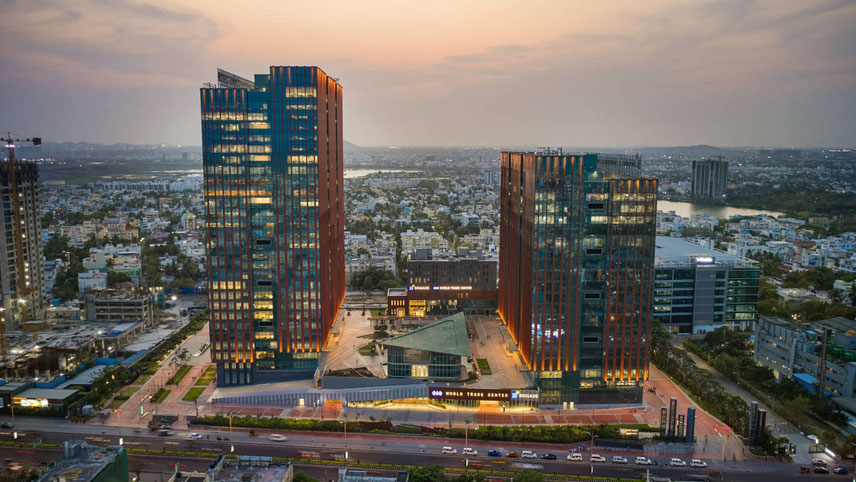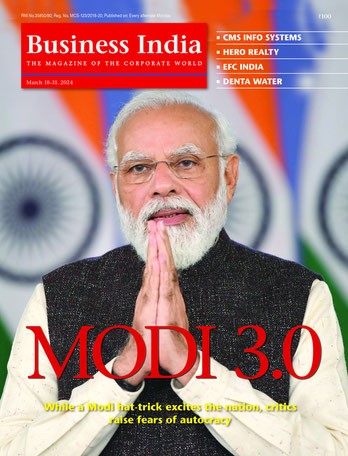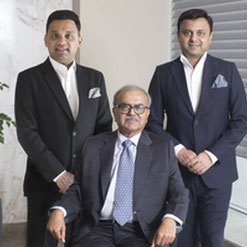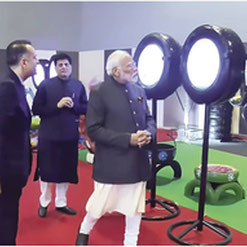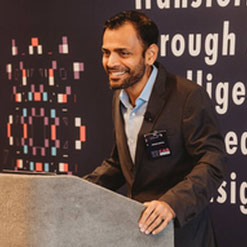-

Kathuria: the state has acted as an enabler
Fast growing segment
Signature Global is today part of the larger trend of a decisive market emphasis on the affordable housing segment in the post-RERA and post-Covid scenario. What is called the affordable housing segment had received a big-ticket push from the current NDA government’s Pradhan Mantri Awas Yojna (PMAY) in 2015 which was meant to create mass scale housing across the country.
It had also envisaged the private sector playing a proactive role with the right kind of incentive support from state governments. A player like Signature Global appeared due to this strategic move and being a company with no past legacy, its preliminary success has become all the more interesting.
As per a strong perception within the realty sector, affordable housing initially was perceived to be the equivalent of what has been popularly known as LIG (lower income group) units or in some exceptional cases MIG (middle income group) units. This kind of classification used to particularly drive the projects of public sector realty firms involved in mass scale production.
“It was this kind of classification due to which many traditional real state majors did not show interest in the segment initially even as they were publicly appreciative of the government’s intent. It entailed doing low margin volume projects. However, the scene is changing now. Deriving benefits from government incentives, some players are now upping the ante and delivering more than what a typical LIG unit in the past meant in quality terms,” says a top executive of a Delhi based firm with a large portfolio in the upper mid segment.
The definition of affordable housing meanwhile differs and varies from place to place. But a broader definition seems to have now emerged. And it is no longer restricted to the Rs10-Rs25 lakh bracket. “Since the launch of PMAY, the definition of affordable housing has altered many times and varies as per the city concerned. In metro cities, if the price of the dwelling unit is Rs45 lakh or below and the carpet area of the unit is 60 sq m or below, then the dwelling unit will qualify as an affordable house. In non-metro cities, the price of the dwelling unit should be Rs45 lakh or below and the carpet area 90 sq m,” explains Anuj Puri, Chairman, Anarock.
With the ambit of affordable housing expanded in terms of sales ticket size and private players pitching in, the share of affordable housing in the total real estate pie has reached a commendable level. And this has happened even when the overall housing sales nosedived in 2020 due to the Corona effect.
PropTiger’s recently released ‘Real Insight Residential Annual Report’ maintained that the contribution of affordable housing, priced up to Rs45 lakh, in total sales during 2021 declined to 43 per cent from 48 per cent in the previous year. The data covered eight leading housing markets – Ahmedabad, Bengaluru, Chennai, Hyderabad, Kolkata, Delhi-NCR (Gurugram, Noida, Greater Noida, Ghaziabad and Faridabad), MMR (Mumbai, Navi Mumbai and Thane) and Pune.
With the share of affordable housing (upto Rs45 lakh) being broadly in the range of 40 per cent of the real estate pie, there has been a growing propensity for financial agencies to accelerate the momentum with their lending support. A recent report by ICRA projects a possible growth range of 17-20 per cent for affordable housing finance companies (AHFCs) in FY23 thanks to factors like the largely underpenetrated market, favourable demographic profile, and the favourable regulatory and tax regime.
-
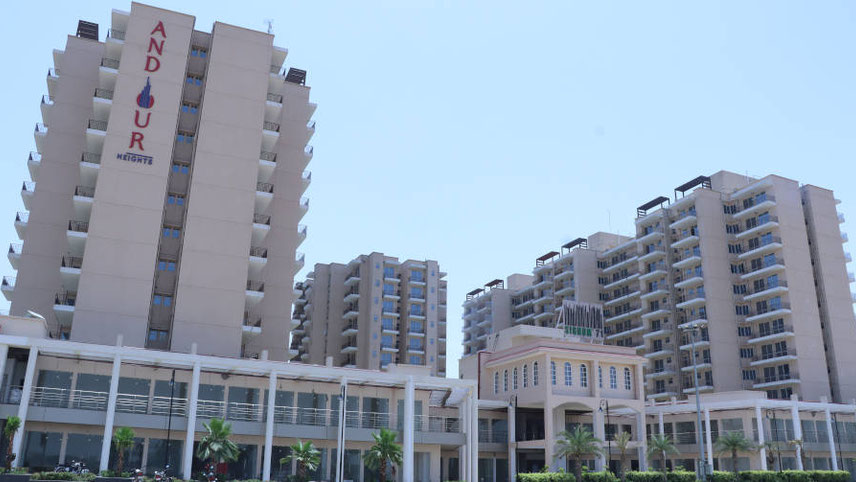
Andour Heights: a six-acre gated community development
As per the report, the total loan book of AHFCs at the end of December, 2021 stood at Rs66,221 crore which is about six per cent of the total housing finance loans in the country. “After witnessing a moderation in the loan book growth in Q1FY2022, the growth for AHFCs picked up again in Q2 and Q3 FY22, with disbursements for the AHFCs reaching 85-90 per cent of the peak levels seen in Q4FY21. As a result, the AHFCs reported a 14 per cent (year-on-year) growth as on 31 December, 2021. Overall, while the growth has moderated over the long-term average, it continues to remain higher than the overall housing finance industry average,” said Manushree Saggar, Vice President, Financial Sector Ratings, ICRA.
And to encash this growing opportunity, there is a select mix of traditional and new players in the market who are making decisive moves today. “Many branded developers started developing affordable housing projects due to subsidies and tax holidays. Some of the reputed names include Lodha, Godrej, Vatika, Brigade, and a few others. Puravankara created a subsidiary, Provident Housing, to cater to only affordable housing. Tata Housing also developed a separate entity for affordable housing – Tata Value Homes. Also, there are some developers such as Signature Global which specifically cater to the affordable housing segment,” Anuj Puri explains.
Arriving on the scene
It is on such turf that Signature Global became a noted name today even as it arrived on the scene without any legacy eight years ago. This could well be a case of arriving at the right moment, just before a fresh impetus to make the affordable housing segment more structured and aligned with the unfolding demand and supply equation. And despite being an underdog in the beginning, the focused approach, the ability to make the most of incentives, getting the backing of the right kind of investors, adhering to compliance norms, etc, seem to have worked well for the firm.
Pradeep Aggarwal (51) and his three younger brothers – Lalit Aggarwal (Vice-Chairman), Ravi Aggarwal (Managing Director) and Devender Aggarwal (Joint MD) – are credited with having built this new castle for the family after spending more than 20 years in financial markets (Pradeep Aggarwal was associated with Delhi-based wealth management firm, SMC Advisory, for a long time). With parental and basic educational linkages to Haryana and Uttarakhand, Pradeep and his brothers took the entrepreneurial plunge at an early age.
“Between 1992 and 2004, I was involved in the arbitrage business at different exchanges. In 2005, I joined SMC and was associated with it till 2017. My stint there gave me a sense of corporate operations and other necessary market insights. We wanted to diversify and looked for opportunities in the real estate sector which eventually happened around 2013,” recalls Pradeep.
Incidentally, when the brothers decided to take the plunge in the real estate sector, the buzz on the affordable housing segment and a fresh hard push from the new government had started becoming stronger. And when the government announced the new policy with specific suggestions to the states that private builders should also be made robust participants, the Aggarwal brothers got their real opportunity.
“The first project we conceived was Solera, launched in November 2014 in Gurugram. In 2015, we launched our second project,” Pradeep Aggarwal says.
-
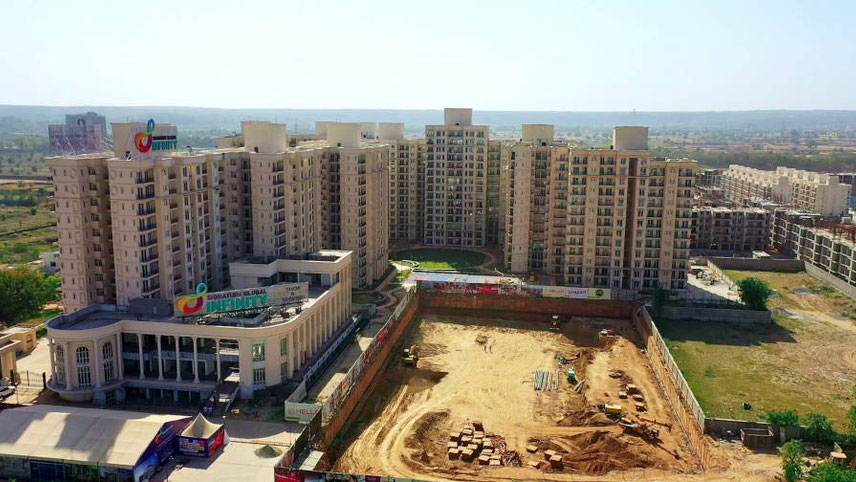
The Serenas, an affordable housing unit designed by Hafeez Contractor
Signature Global’s foray coincided with the Haryana government announcing incentives for private builders by way of two specific policies for affordable housing. There was the policy to encourage high-rise affordable housing units and a specific Deen Dayal Jan Awas Yojna (DDJAY) to sell land parcels to organised players who in turn could sell them as bulk developed structures.
Under the high-rise projects, the state government allowed flat units in the range of 28 sq m (1 BHK) to 60 sq m (2 BHK structures). The initial sanctioned price was Rs4,000/sq m which has been recently enhanced by another Rs200/sq m considering the recent escalation in costs. DDJAY supported the affordable housing plan in a different way.
“In Haryana, about 3,000 unauthorised colonies were mushrooming at that time. There were several incidents of duping of ordinary buyers. It had become a big challenge for the government to control them. The government brought this scheme and fixed the plot size from 80 to 150 m. These plots are available in low potential, high potential and hyper potential areas (eg Gurugram),” explains Pradeep.
Taking advantage of the benefits of the project, the company launched its first project in Karnal. “Cutting the plot and selling it to different individuals has its own issues. Many a time, the buyer finds it difficult to construct on his own. So, we decided to create the colony and sell finished flat (floor) to the buyers instead of selling plots,” he adds. The project met with success, encouraging the company to launch another project in Sohna in the range of Rs40-60 lakh (floor-wise construction).
According to Rajat Kathuria, CEO of the firm, both the schemes offer a host of incentives and the company has been quite proactive in making the most of them. “The state government has truly acted as an enabler. In the high-rise policy, the government gave an FAR (floor area ratio) of 2.25 as against the basic norm of 1.75. The government gave permission for retail development within the complex which has been further enhanced to 8 per cent of FAR. Then they increased density norms which allow creating smaller-sized homes which was not permitted earlier. Then the government also waived off IDC. All of this made the projects viable,” he says.
The floor area ratio in the case of DDJAY is even higher, at 2.64. A tax holiday for developers was also allowed; it expired at the end of March this year. As of today, the company has a portfolio of 21 projects sanctioned under the affordable high-rise scheme and seven under the DDJAY scheme.
Backed by financial powerhouses
While admitting that the incentives played a key role in the creation of Signature Global, Pradeep Aggarwal asserts the company strictly adheres to rules like meeting delivery deadlines, which has endeared it to its customers. And maintaining a high degree of compliance on all fronts and corporate governance has made it a favourite for leading financial agencies and PEs like HDFC Capital, ICICI Prudential, IFC and KKR who are expanding their portfolios in the affordable housing space.
-
I don’t think in the affordable housing segment in Gurugram, anybody today has as robust a pipeline as we have
“In 2016, ICICI Prudential supported us with an NCD deal of Rs150 crore. This was followed by a similar deal with the leading PE KKR, amounting to Rs200 crore. HDFC Capital in association of ADIA Capital (Abu Dhabi) made an affordable housing fund and the first disbursement of Rs250 crore was made to us,” says Pradeep Aggarwal while asserting that the backing of such agencies made Signature Global’s story more credible.
The company is estimated to have raised over Rs1,200 crore to date and early this month received further financial support by raising another Rs400 crore from HDFC Capital Affordable Real Estate Fund 3 (H-CARE 3). The funding is expected to be utilised for land acquisition and the development of affordable housing projects in Haryana.
“That the company has ambitious plans is something that had become quite clear at the early stage. The good thing is: it has backed that ambition with professionalism which has resulted in its dominant emergence after the waning of Corona,” points out Rajat Kathuria who had helped the company to raise funds as part of a leading consultancy firm for seven years before he came on board as CEO in 2020.
Meanwhile, funding support to the company has come in the form of both NCD or non-convertible debentures and CCD or compulsory convertible debentures. So, what does its equity structure look like? Pose this question to Pradeep Aggarwal and he replies in indicative terms. “ICICI-Pru and KKR, both provided support by way of NCD. ICICI-Pru later also supported through CCD but their share was bought by HDFC in 2021. IFCI has infused funds both in the form of CCD and NCD. So, two investors have invested by way of CCDs – IFC and HDFC Capital. Of course, at the time of the IPO, they will convert it into equity,” Aggarwal says while asserting that the family has a comfortable majority holding.
There has been considerable buzz about the company’s IPO in media circles in recent months, with speculation the enlisting will happen before the end of the current fiscal. Aggarwal, however, refuses to share a dateline or the possible ticket size. “All I can tell you right now is we are working on it,” he says succinctly.
In financial terms, the company seems to be on a roll with its pre-sales figure jumping from Rs900 crore in FY20 to Rs1,750 crore in FY21. In FY22, this is estimated to have further appreciated to the tune of Rs2,500 crore as per an official version. The company’s current portfolio – 90 per cent residential and the remaining 10 per cent commercial – comprises 27 million sq ft, out of which 9 million sq ft has been delivered. The remaining will be delivered in the coming years and it comprises projects like Signature Global Imperial, Signature Global City (at three locations), The Millenia, Signature Global Park, etc. Most of these projects are located in Gurugram.
-
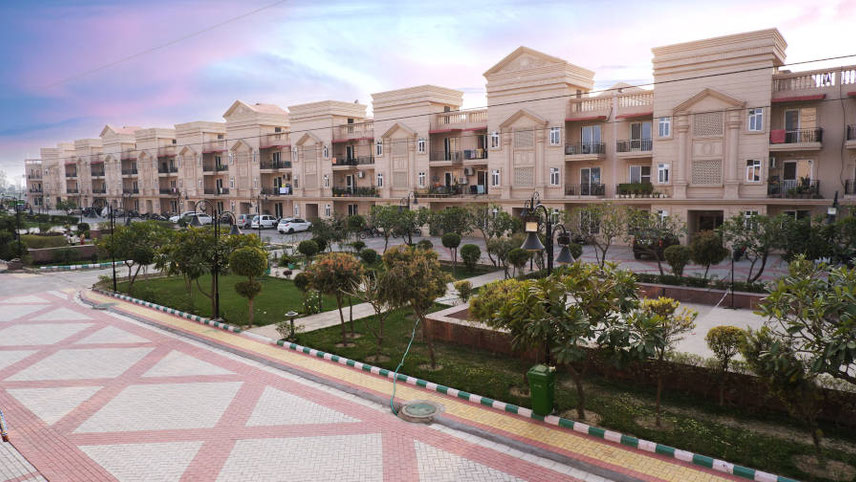
Sunrise The Premium Floors located at sector 35, Karnal
The company has, in fact, just started the delivery of units at The Serenas, an affordable housing unit (nine acres and over 1,300 units) in the south of Gurugram or Sohna Road which has been designed by noted architect Hafeez Contractor. Behind this complex, the company is developing another major project under the DDJAY scheme which will eventually cover 33 acres. “I don’t think in the affordable housing segment in Gurugram, anybody today has as robust a pipeline as we have,” Aggarwal underlines.
Meanwhile, there could be more new launches on the cards. For instance, the company is contemplating a major affordable housing colony in Rajnagar Extension, close to Ghaziabad, Uttar Pradesh. In the past two decades, the location has emerged as a leading residential hub on the outskirts of Delhi.
Pradeep Aggarwal, however, clarifies that while scaling up operations and targeting new growth milestones, the company has no plans to leave its bastion which is Delhi/NCR. “Within real estate, this will be the decade of affordable housing. Delhi/NCR alone needs four crore homes by 2030 in the affordable category. We are not delivering even five lakh per year. Even 1,000 developers like me can’t match the demand,” he says while adding that some serious success stories are waiting to emerge from the affordable housing platform in different zones in the country. He clearly wants to be part of this success in northern India.





















